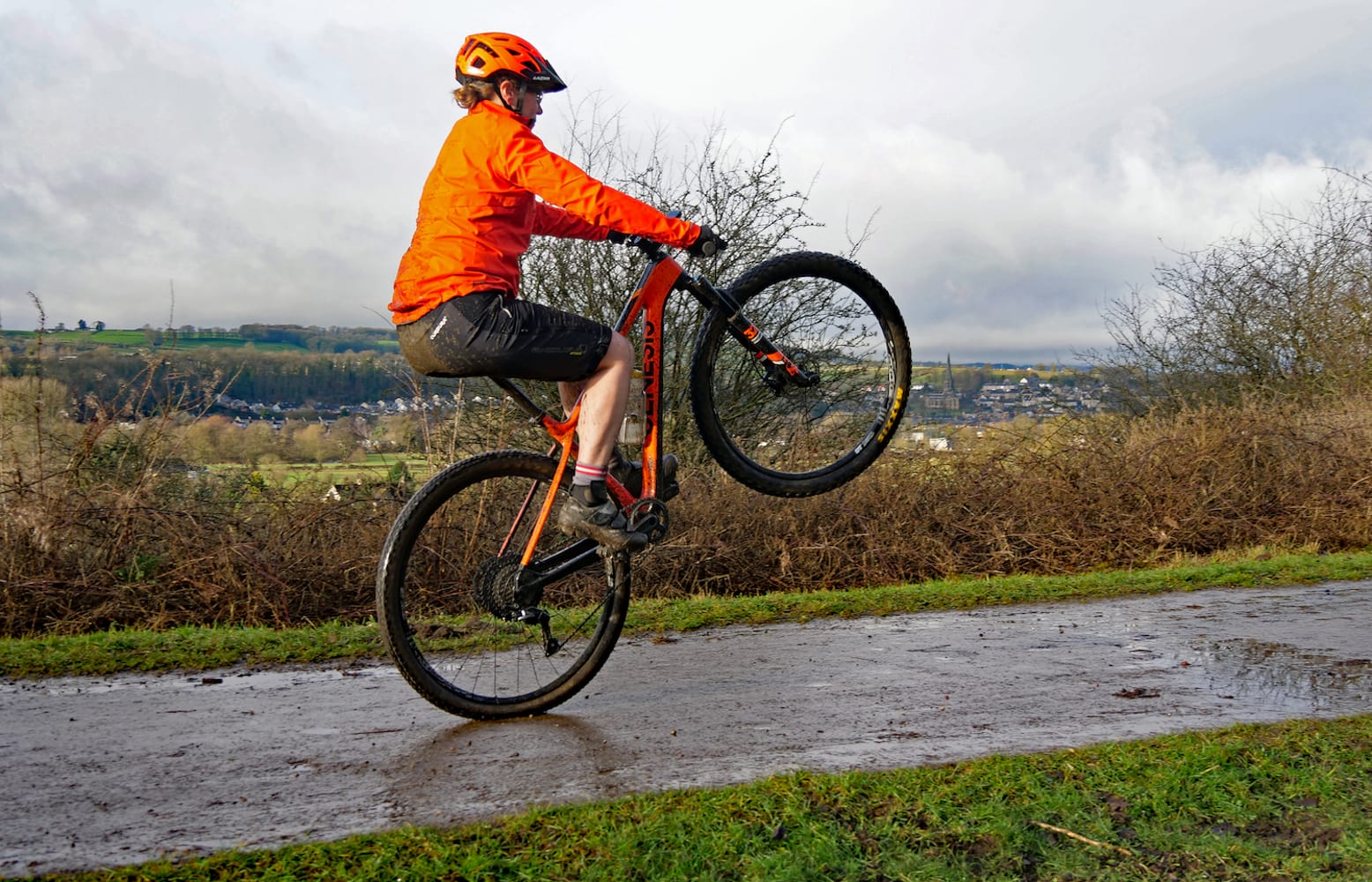Last year, Genesis Bikes brought out its brand new carbon fibre hardtail called the Mantle. We gave it to our lean, mean, climbing machine, Rachel Sokal, to put it through some winter slogging to see how Genesis’ lightest mountain bike stacks up. Over to Rachel!
Genesis is probably best known for its steel framed adventure bikes like the infamous Croix der Fer. Even its mountain bikes have more than a nod to utility with the “adventure ready” Longitude leading the range (a bike Jason tested).
Designed to be a lightweight XC/Endurance racing machine, the new Mantle rather bucks that Genesis trend. The name and concept isn’t new though – Genesis had a Mantle in their range back in 2013 and 2014. As back then the new model is a 29er hardtail but, as you would expect with changes in geometry and design over the last few years, lots of other things have changed.
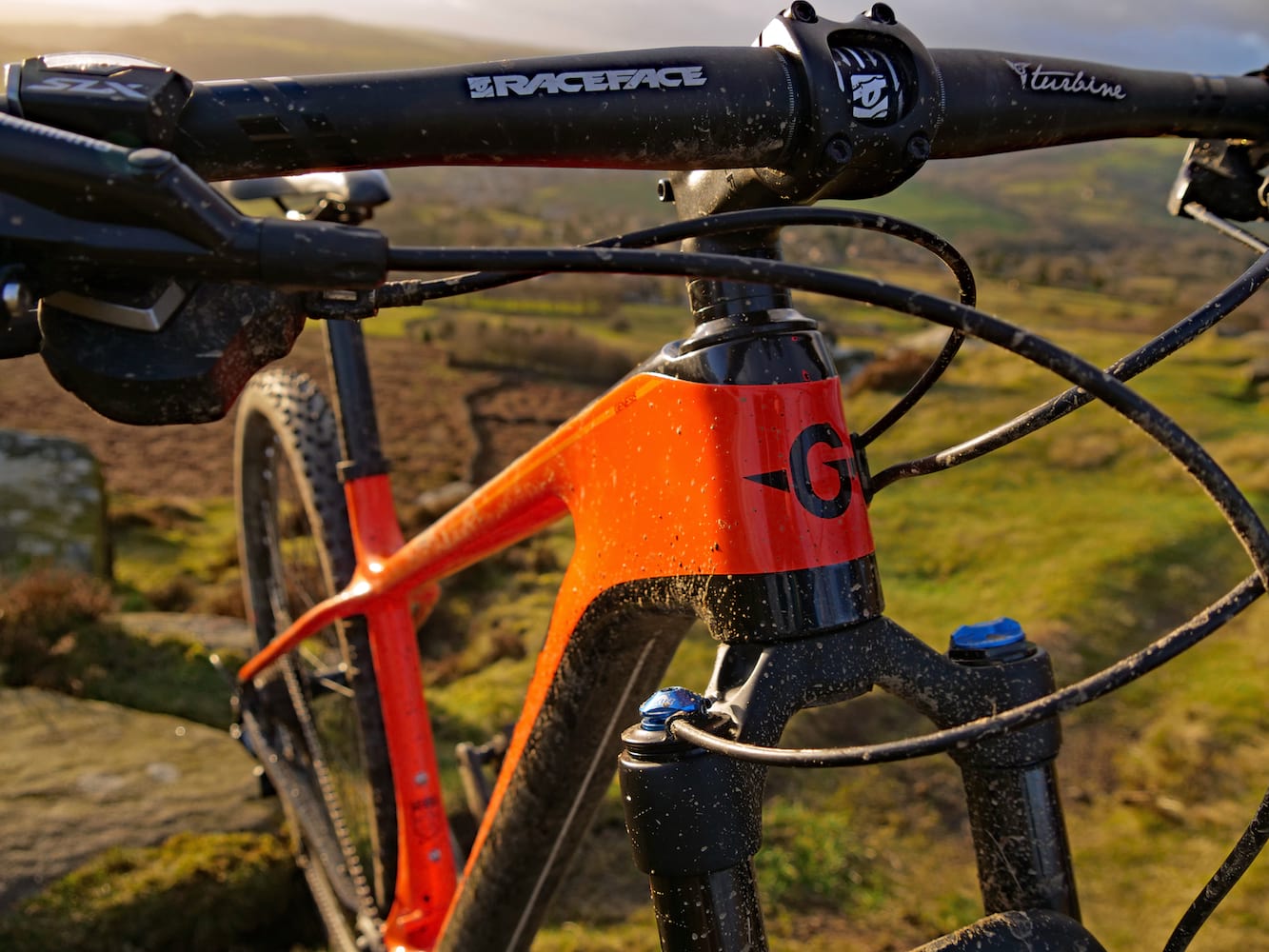
Never known to be a strict follower of fashion, I have to confess to being a fan of a XC hardtail. I reckon the sheer simplicity of a lightweight, responsive and no-nonsense bike is often the best way to get that fix of unadulterated MTB joy. But there are downsides too. The traditional steep geometry of an XC hardtail can feel limiting on more technical and steeper sections and there’s usually barely sufficient mud clearance to cope with a British summer let alone proper winter slop. This makes me a big fan of the newer generation of XC bikes (like the three full sussers we recently reviewed) that adopt a longer, lower and slacker geometry and more sensible mud clearance than their elders. Boasting a 69° head angle and enough clearance for 27.5+ tyres, I was looking forward to finding out how the Mantle performed across a range of riding.
Latest Singletrack Merch
Buying and wearing our sustainable merch is another great way to support Singletrack
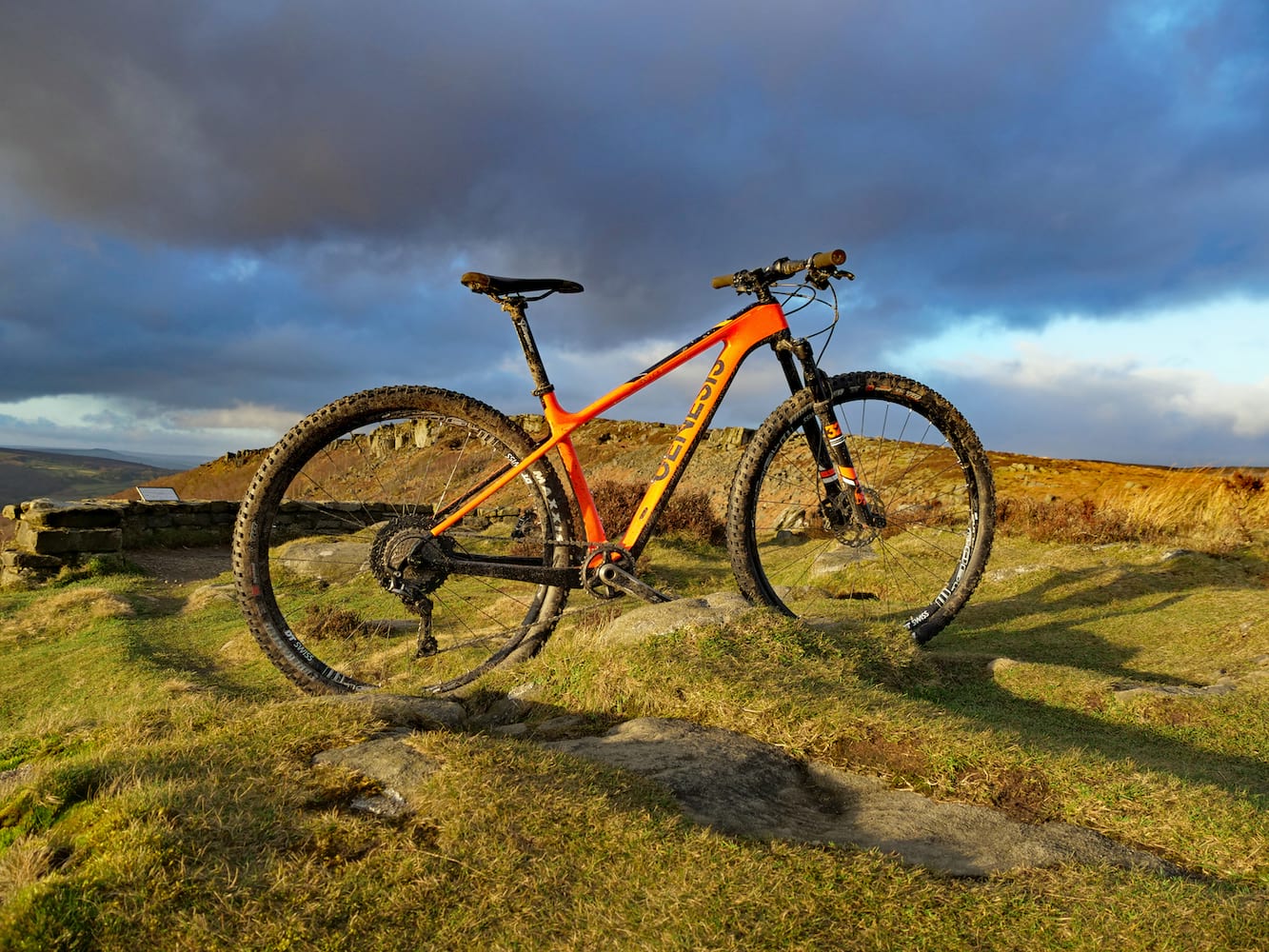
The Bike
Now a carbon frame rather than its predecessor’s alloy, the Mantle is available in two builds – the 20 and 30 – and as a frame only. Bar the colour-scheme, the 30T modulus carbon frame is the same across the three options.
The frame features internal cable routing, is future proofed with Di2 compatibility and has mounts and ports for a front mech and dropper. Boost hub spacing gives extra wheel strength and frame clearance for chunkier tyres. The gargantuan tubes around the BB junction promises a whole lot of pedalling stiffness and power transfer as well as neatly housing the PF92 bottom bracket.
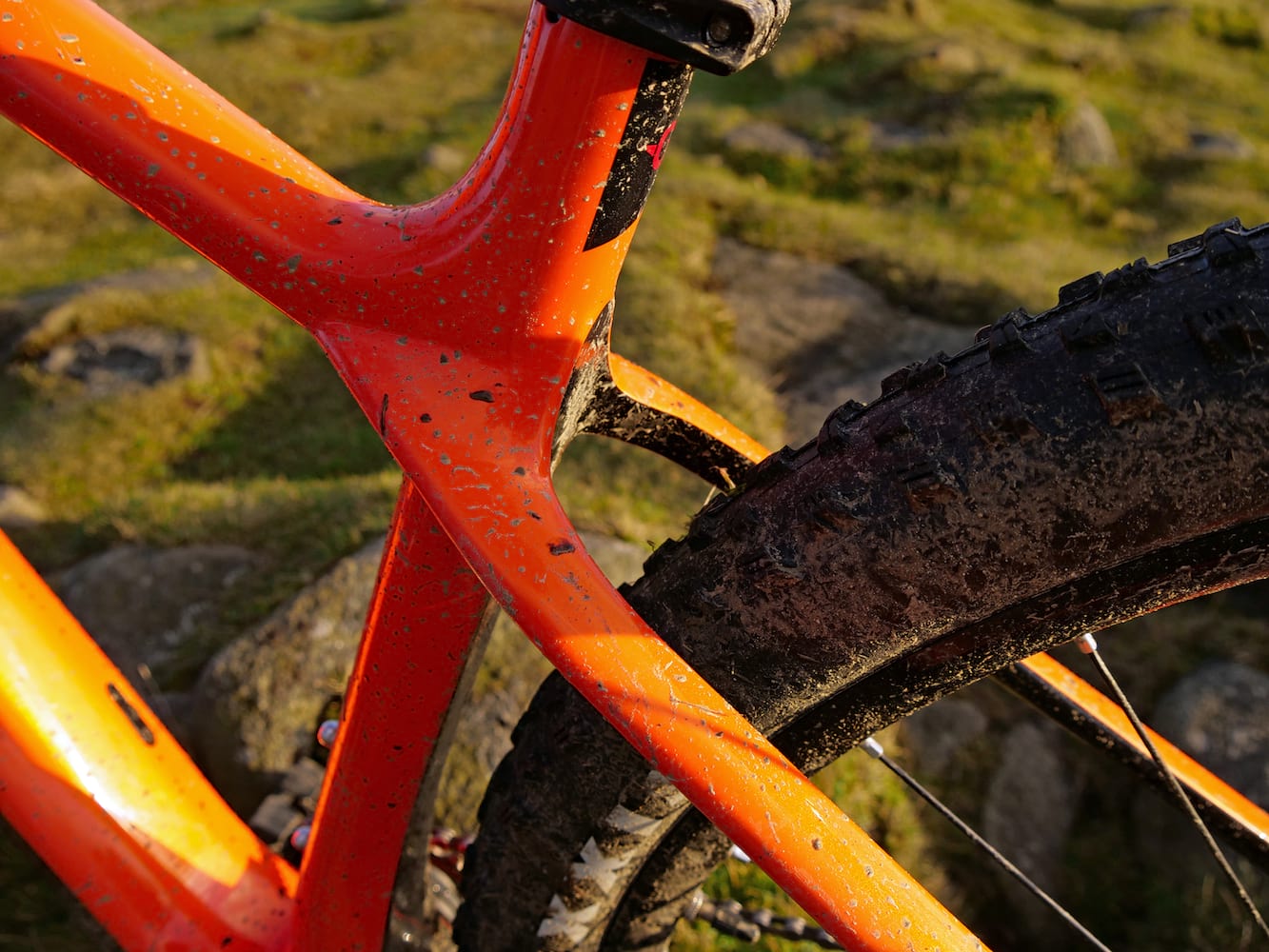
There are four frame sizes: small (15in) to extra-large (21in). The medium (17in) has a reach of 435mm and stack of 609mm which is pretty long ‘n low for XC. Head tube length is 95mm which means you can get things nice and slammed for racing, or make use of spacers for a more comfortable trail riding position. The 69° head angle, 73° seat angle and 435mm chain stay length aim to balance stability and control with full out speed.
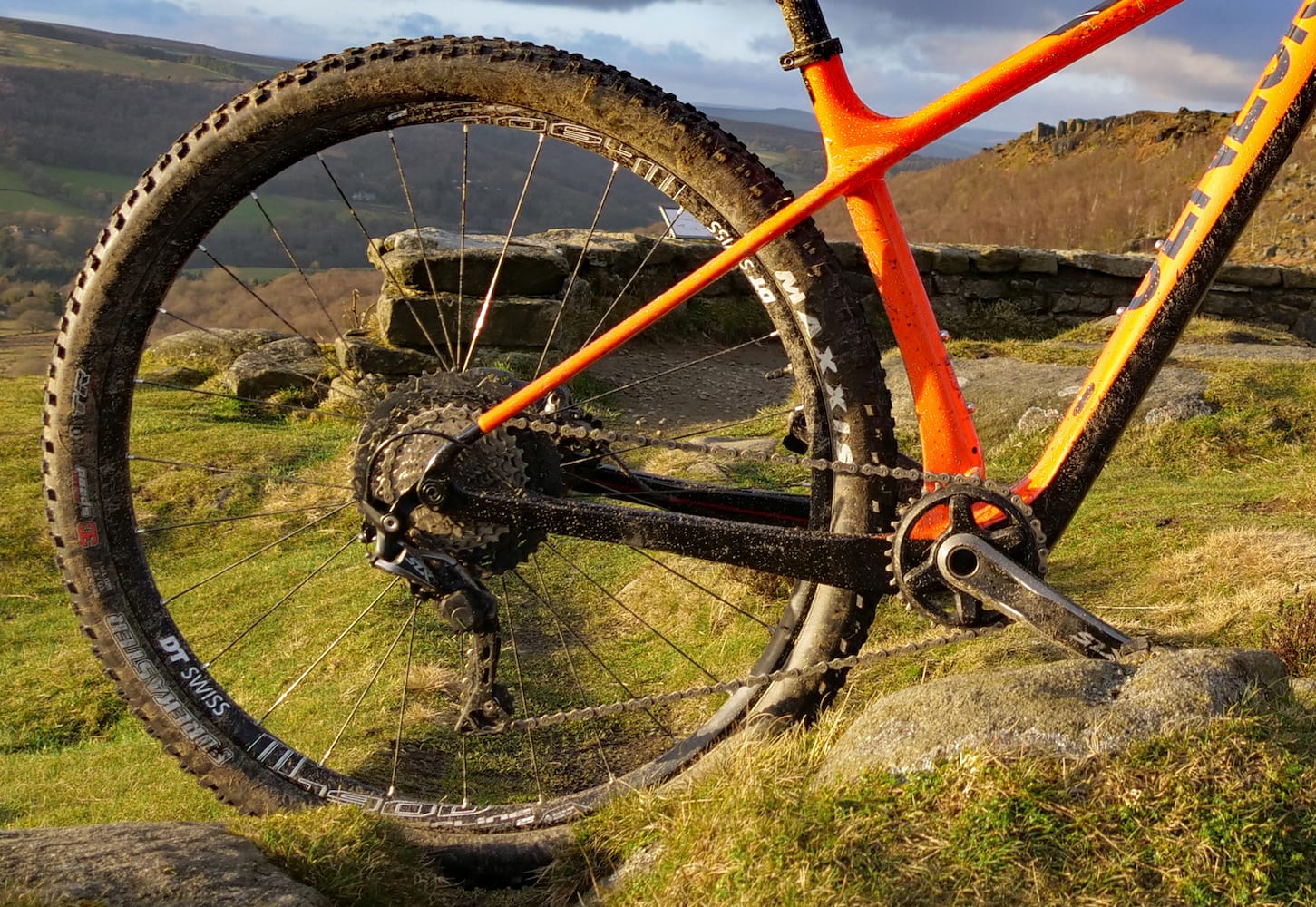
The bright orange 20 is equipped with a Fox 32 step cast 100mm fork, 1x Shimano SLX drivetrain, MT500 brakes, DT Swiss M1900 wheelset and Race Face alloy finishing kit and retails at £2,599.99. Another £1,000 gets you the 30 with the same frame and fork and upgrade to XT, DT Swiss M1501 wheels and carbon Race Face finishing kit. The frame only retails for £1,499.99.
For those playing at home, our medium weighed in at 10.8kg (23.76lb) with inner tubes and without pedals, which is bang on the listed weight. As for the frame itself, Genesis claims it weighs just a shade under 1.5kg (3.3lb), which includes paint, seat clamp, headset and the rear axle – things that aren’t always included in claimed frame weights by other brands.
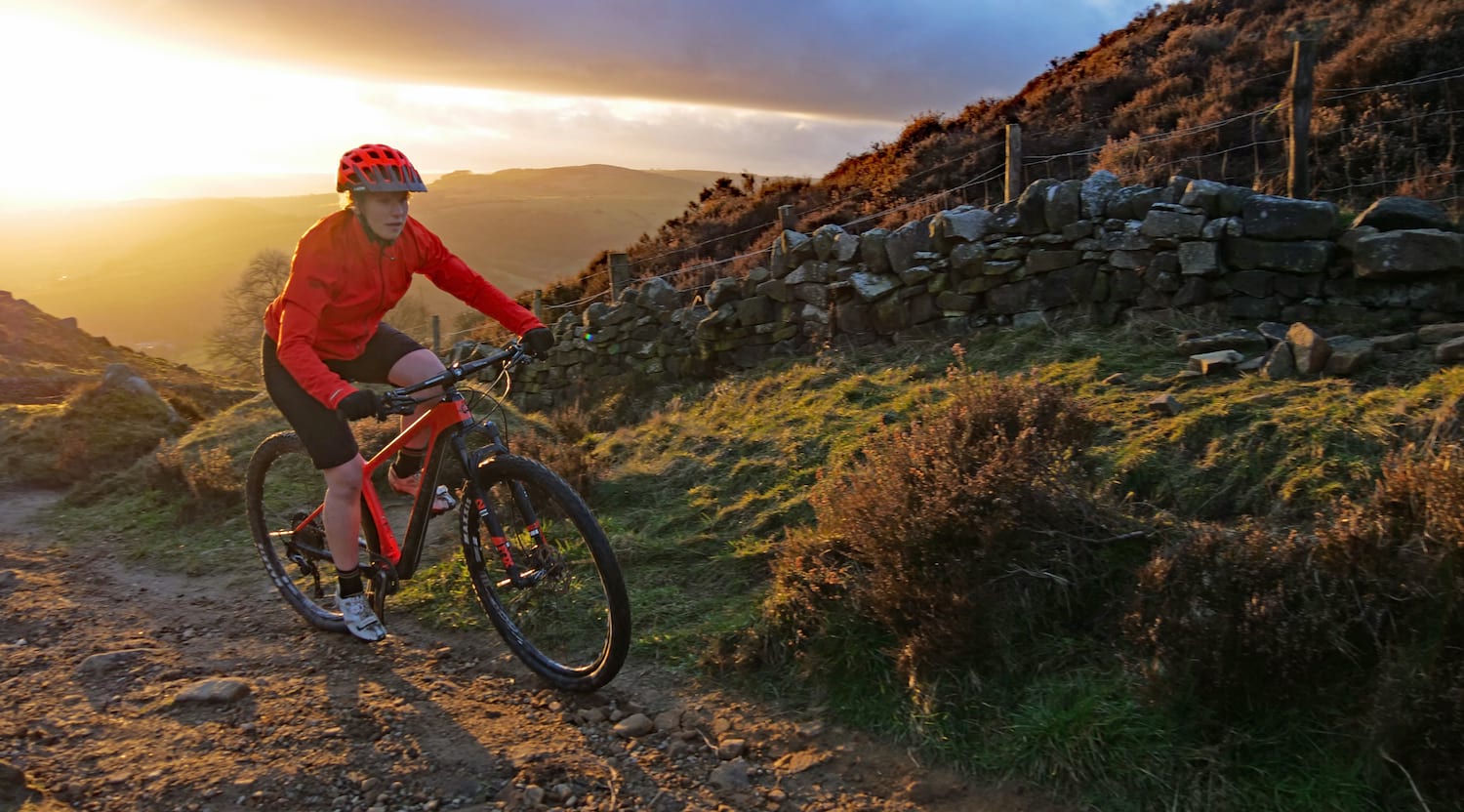
The Ride
My first impression was how unnoticeable the Mantle was, something I mean in a very complimentary way. To set-up, all I did was fit my pedals, get the saddle to the right height and angle and away I was, I didn’t tweak one single part of the set up during the whole test. Now, granted, this doesn’t mean that the Mantle will fit everyone in such a natural way but it’s not just a chance coming together of my and the Mantle’s sizing that made things feel right. Unlike many modern bikes it’s not excessively one thing or another, just nicely balanced in the middle. For example, the bars are a comfortable 720mm width and neither excessively wide nor old skool narrow and are well matched with a 70mm stem – a combination appropriate for the balance of stability and reactivity that you want on this kind of bike.
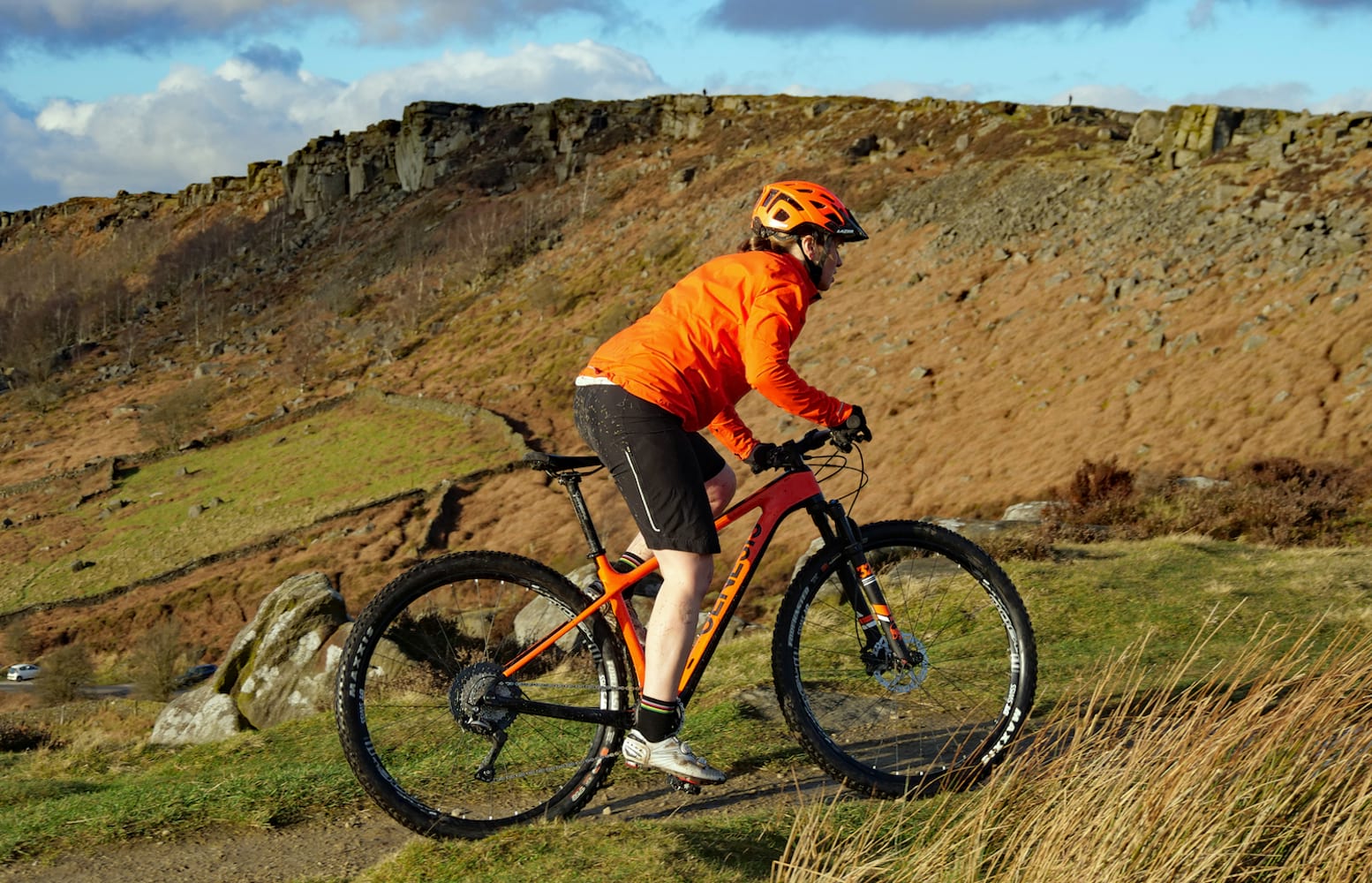
On the trail it felt equally unnoticeable and coped without fuss at everything I pointed it at. I’m small enough (1.67m / 5’6” tall) that I can still find 29ers a bit unwieldy on tighter trails, as I struggle to get enough weight over the front end for decent grip. I didn’t have any such trouble with the Mantle with the head angle and fork trail giving great handling (I had the same saddle-to-bar length and drop as I have on my own 29er XC HT so it wasn’t actually a weight-thing that made for the good handling).
It coped admirably on steeper, rockier terrain too – far better than other XC bikes I’ve ridden on the same trails – and it was the lack of a dropper rather than the geometry that limited me. Unfortunately I didn’t get a chance to ride the Mantle with a dropper post as it needed to go back to Genesis before I was able to get hold of one in the right diameter. If this was my bike I’d have one on from the outset as it’s begging to be ragged harder than a rigid post will allow.
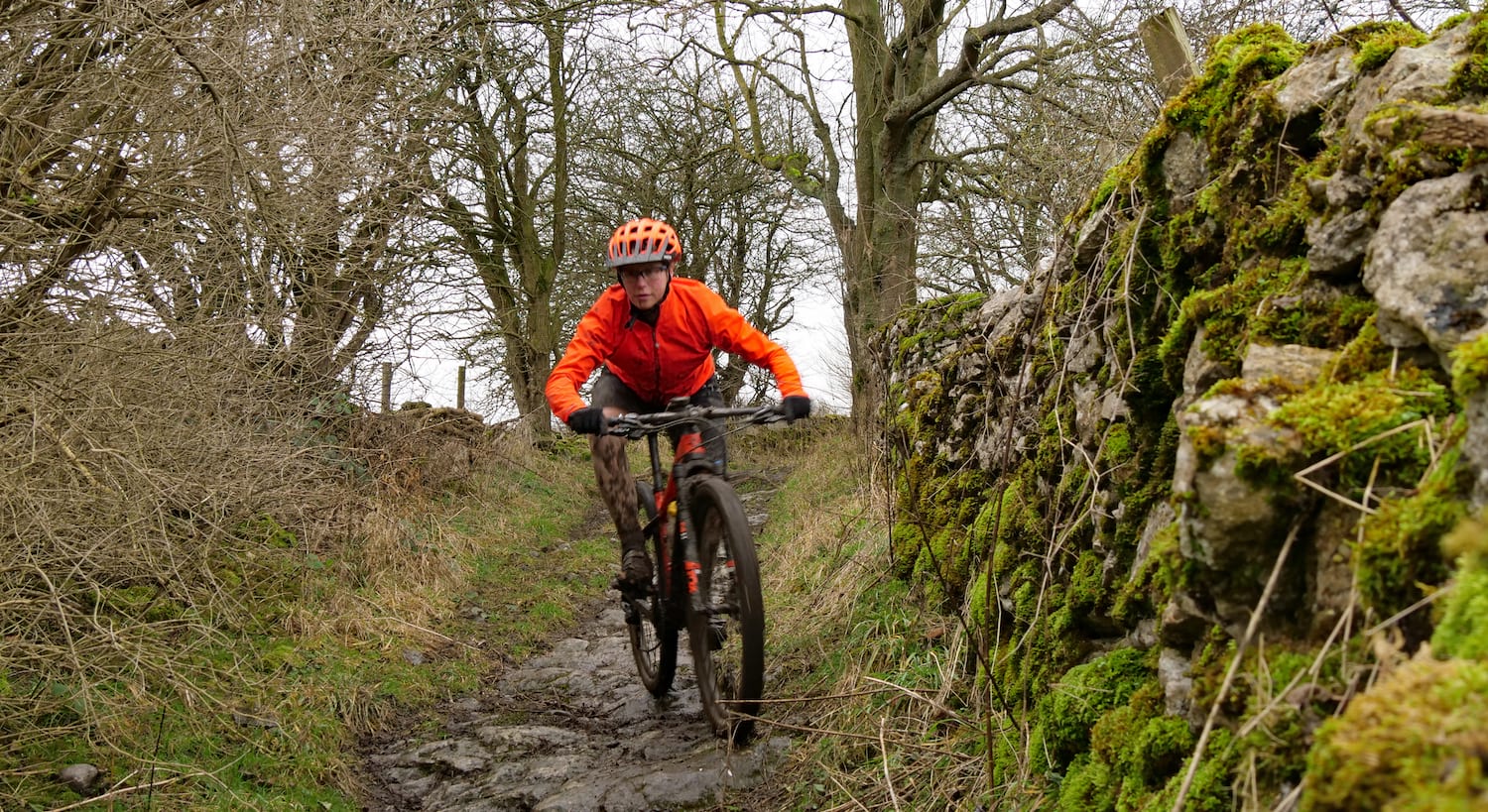
I was also rather held back by the Fox 32 fork, which had a broken lock out system, and a damaged rebound adjuster that was present before the bike arrived at Singletrack Towers (Ed: honest!). This isn’t a reflection of a Fox 32 overall, which is an excellent and lightweight XC fork (Wil was certainly impressed by its smooth and supple handling on the Canyon Exceed), rather than the difficulty for distributors in keeping up with the mechanics of their test fleets. I’d also love to give it a go with a 120mm fork to be able to hit bigger things a bit faster than I dared with a 100mm up front.
As you’d expect, the Mantle was fast and responsive to power through the pedals and climbed well too. It didn’t actually feel that fast, because it’s so nicely balanced and stable, and not skittish like XC bikes can be. But my Strava times and gaps to riding mates showed it was pretty quick.
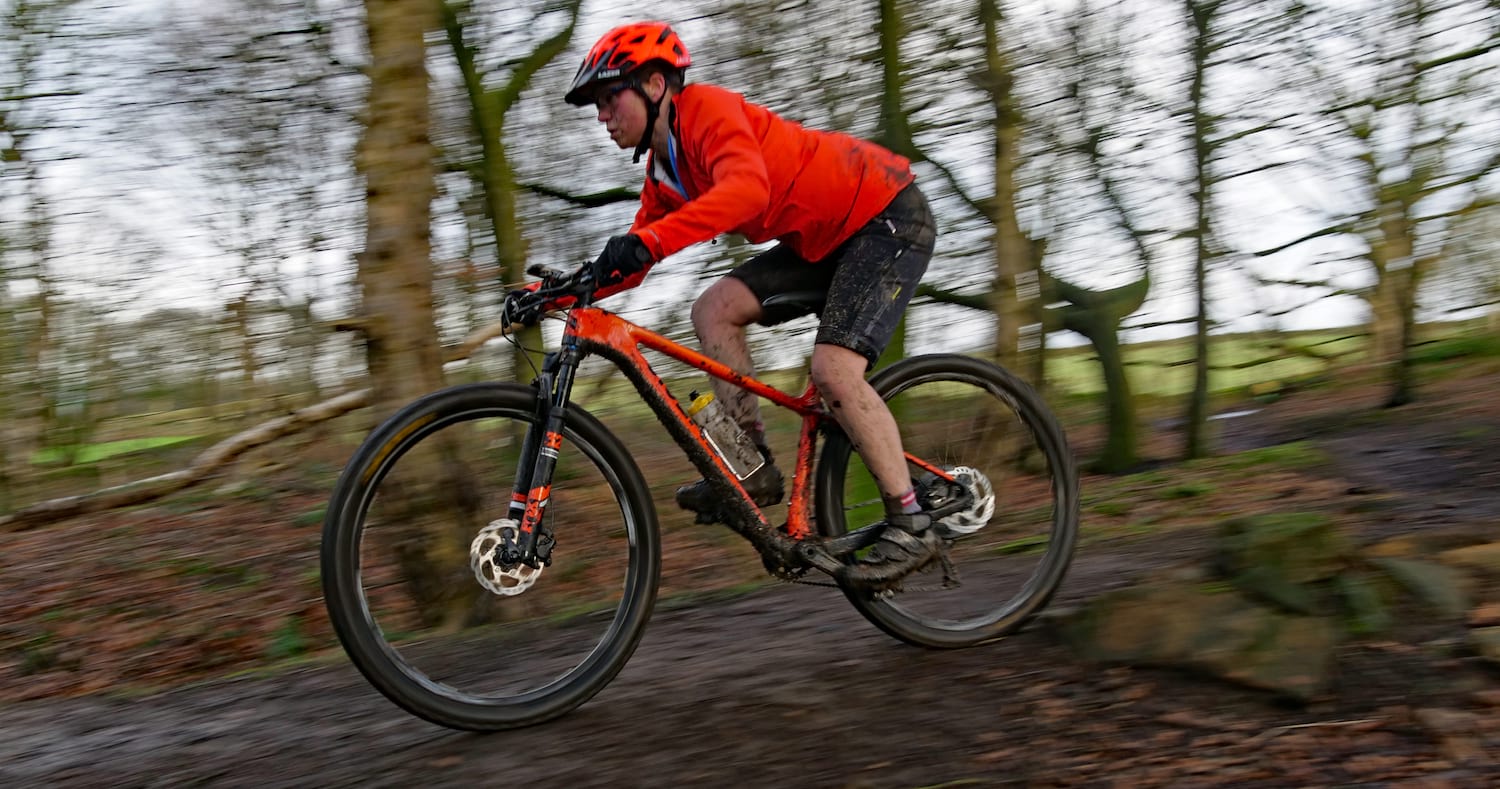
I’m lucky enough to be able to afford to spec XT on my own bikes so haven’t ridden SLX for a long time. I was really impressed by its performance and have to confess most the time I wouldn’t have been able to tell the difference in blind testing. Whilst a difference on-the-bike shifting wasn’t noticeable or unduly heavy, the SLX clutch mech runs a noticeably high tension when you’ve got the bike on the work stand, much more so than the XT. On a couple of occasions I thought the B-screw needed adjustment to stop the jockey wheels dragging, until I realised it was just the force of the mech (switching the clutch on and off proved this). In the longer term I’d worry that this would put much more load and consequently wear through the drivetrain.
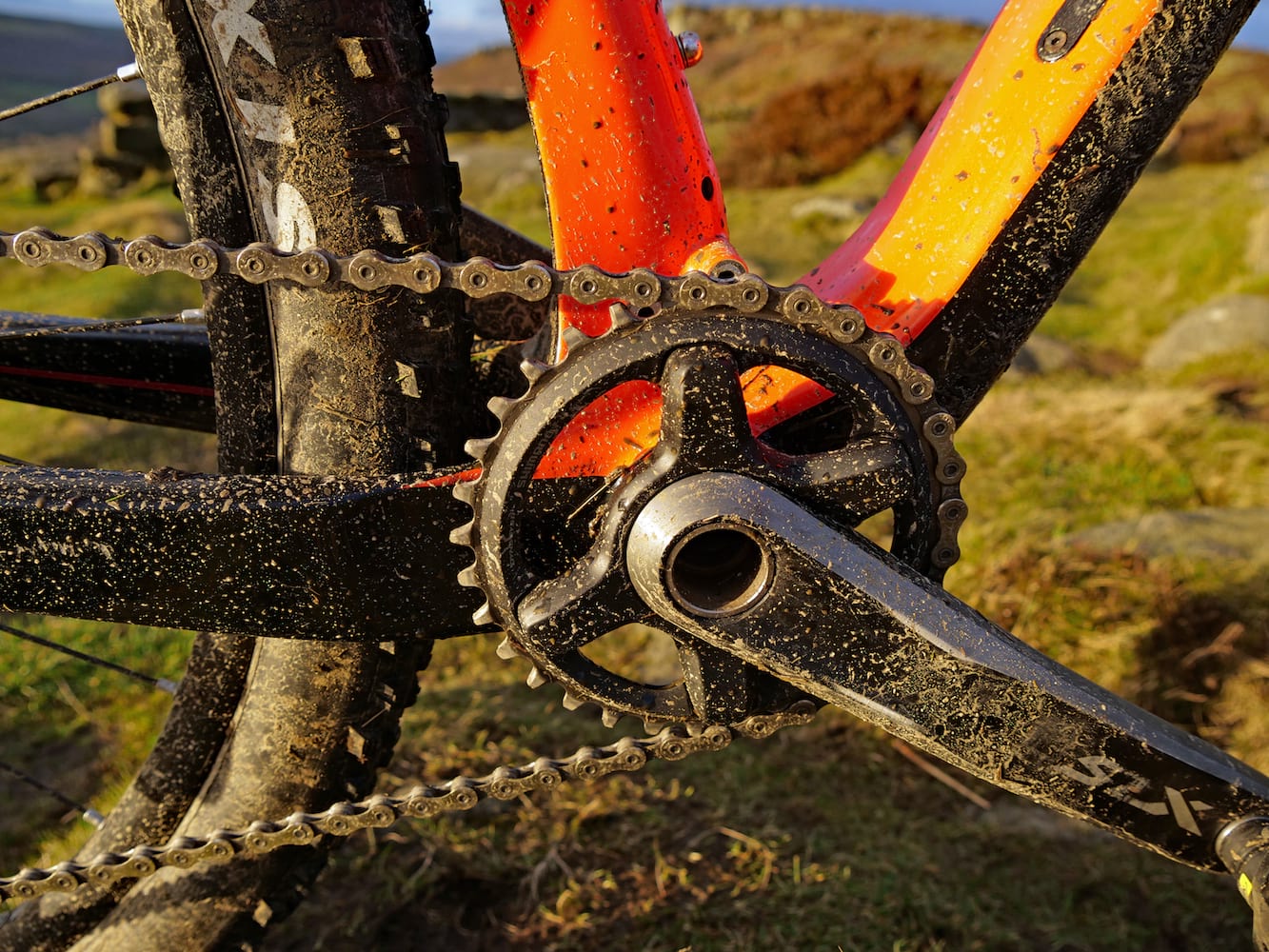
Performance-wise I was surprisingly disappointed by the Maxxis Forekasters. On paper these are a perfect tyre for my local wooded singletrack and I was looking forward to giving them a go. Sadly on the bike they were unrecognisable to their description and I constantly struggled for traction in greasy conditions and roots, particularly from the side knobs, and so I spent quite a lot of time skidding sideways. After one squeaky bum time too many I swapped them out to a less winter-appropriate combination that still proved more reliable. Because of the tubes I was running higher pressures than usual but kept these the same when I swapped over and the compound of the other Maxxis tyres I replaced them with happened to be the same as the Forekasters so I can only put down the performance to the tread rather than other attributes.
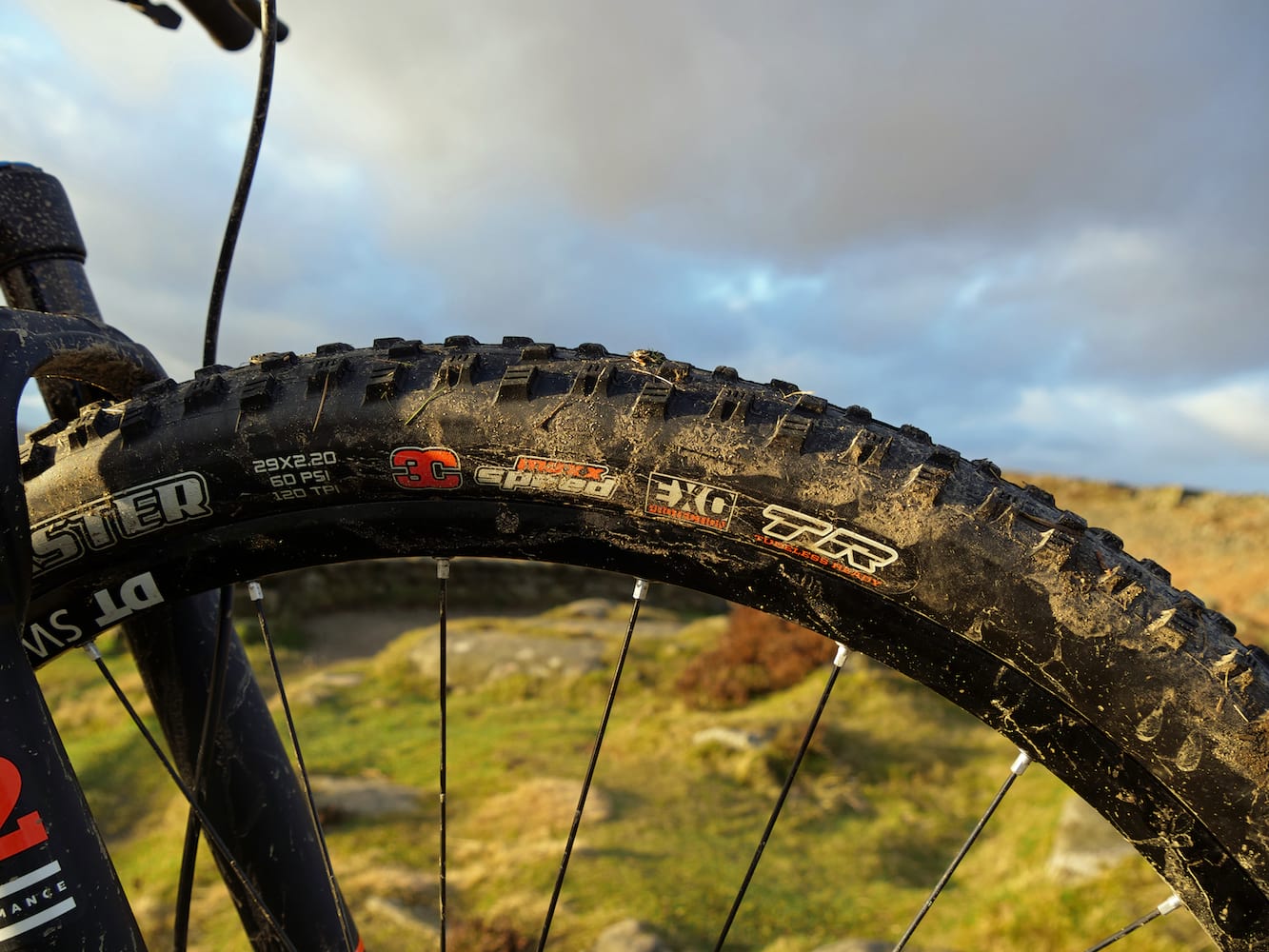
Durability Notes
Aside from the fork I had no issues with durability of any part of the bike. Well, until I came to packing it up and I tried to remove the post to send the bike back to Madison. It was absolutely stuck fast. Eventually with much grunting, GT85, body weight and leverage I managed to get the post free. Although I’d only had the bike on test for three months the alloy post had started to bond in the frame and there was an awful lot of carbon residue left on the post.
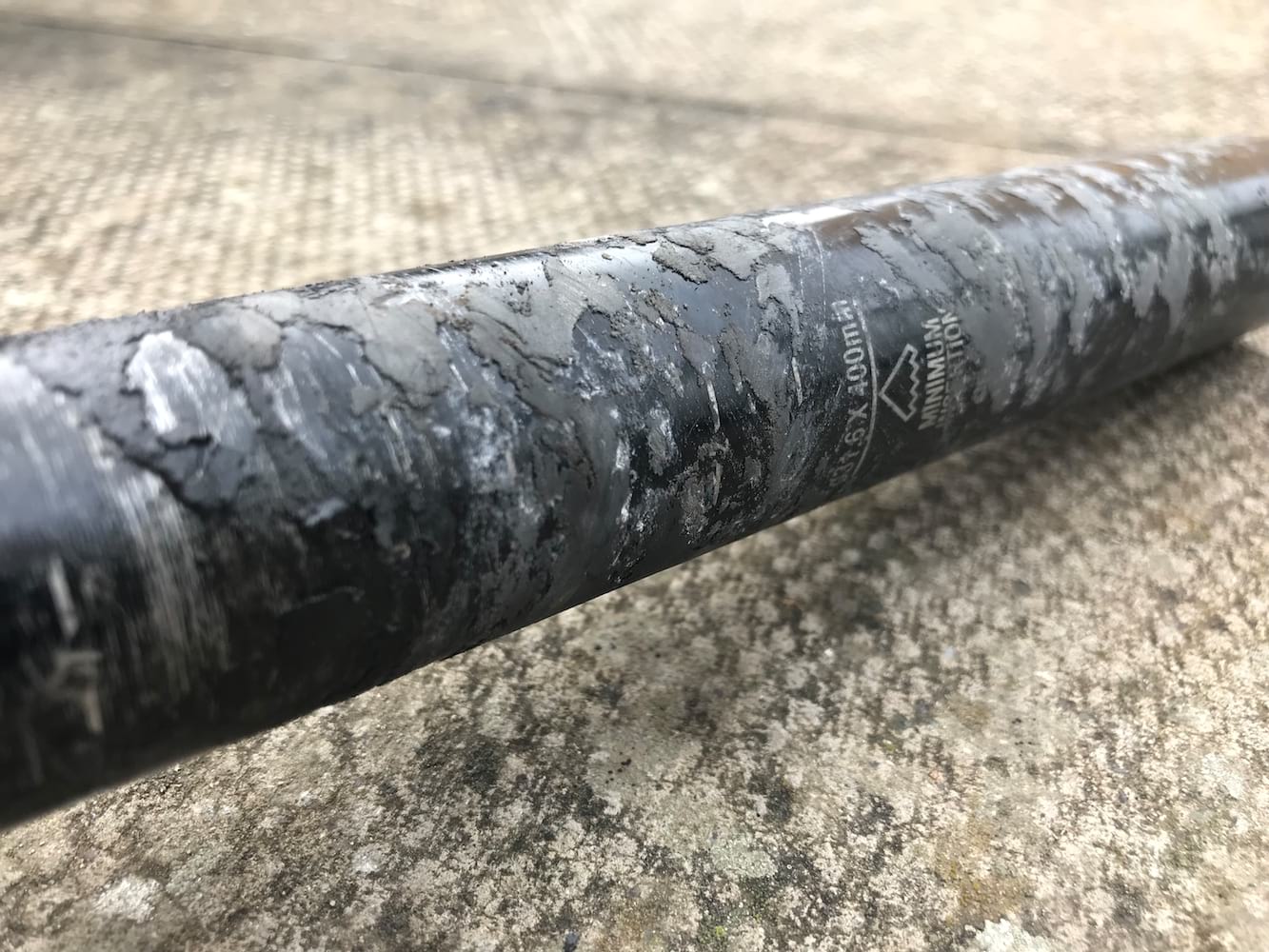
Could this have been all the mud and rubbish that had got in over the winter? Possibly. But despite the pretty wet winter we’ve had there weren’t that many rides that I got the bike absolutely caked. Plus, I’ve not had this happen with any other bike so I like to think my usual maintenance is up to scratch. My assumption is that there was something in the grease used during assembly that has reacted to the carbon, so I’d recommend (as with any carbon components), that you ensure it’s clean to begin with, and apply a good dose of carbon paste to avoid this happening to your own Mantle.
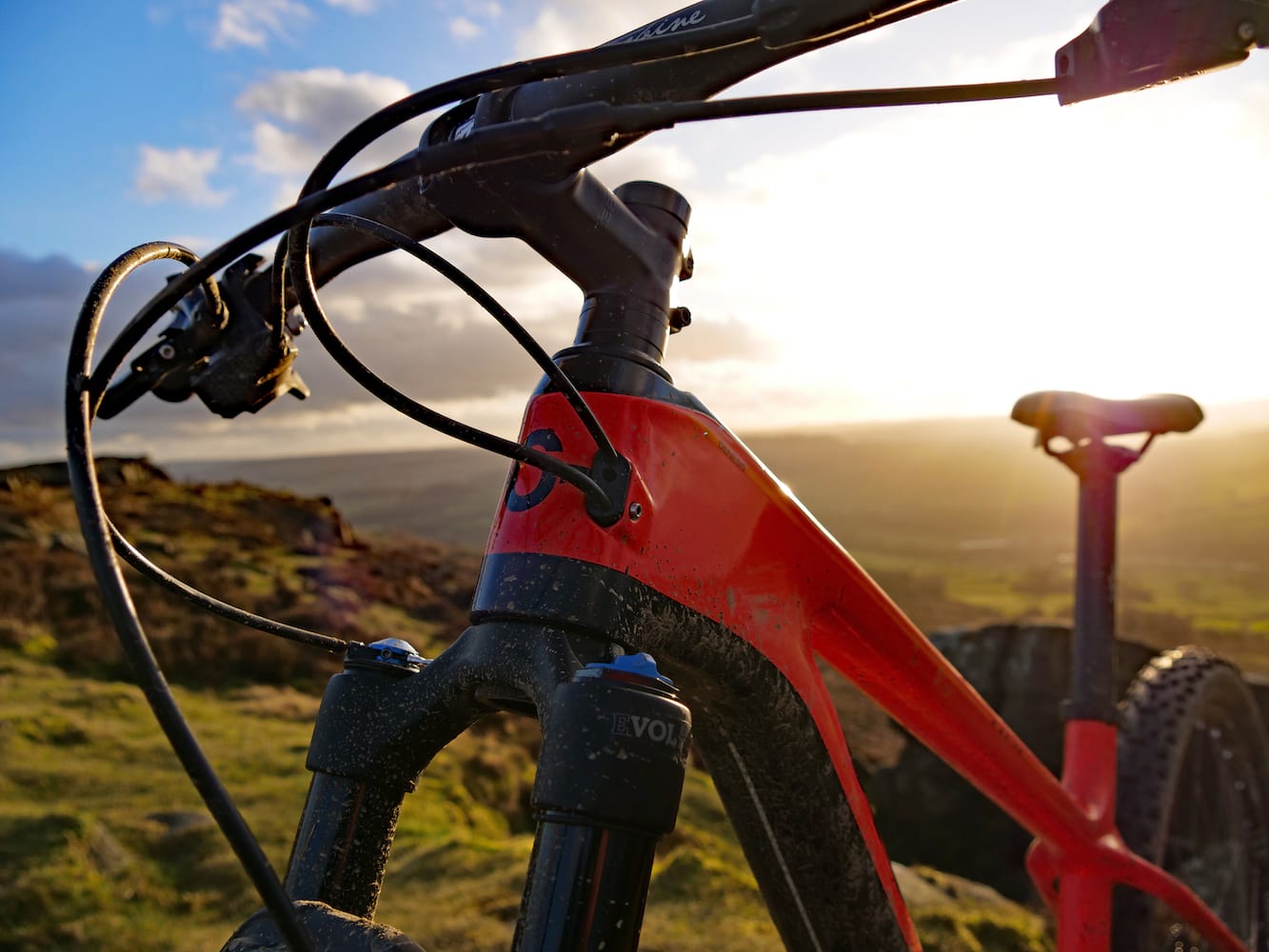
Three Things That Could Be Improved
- Maxxis Forekasters tyres don’t fit the bill as a fast rolling XC tyre, and they are not up to handling anything remotely greasy either
- A 120mm fork and dropper options – the bike is capable of much more than its out-the-box spec can deal with
- Tyres to arrive set up tubeless please
Three Things We Loved
- Its natural and unassuming feel – it did everything I wanted to do without any fuss or compromise
- Specced for natural upgrading – frame and fork shared with the high spec model
- Compatibility for a dropper and Di2 upgrade
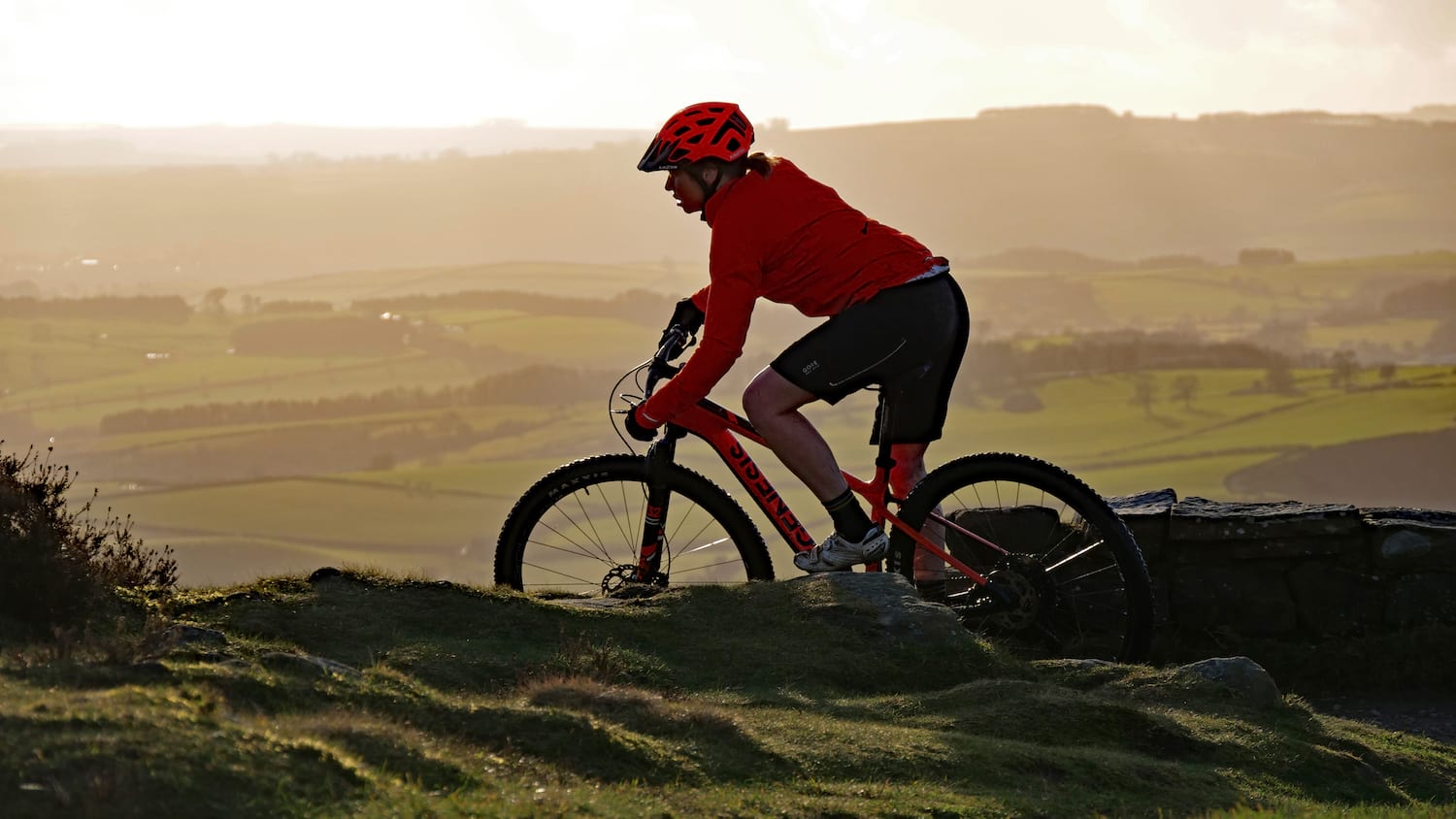
Overall
I had a great time aboard the Genesis Mantle. It feels like a bit of a throwback to the days where things seemed to be simpler and you knew no different, to those times when bikes were just fun to ride without having the R&D and technology advances that have pushed bikes to the nth degree.
It performed efficiently and effectively in a perfectly understated way (save for that bright orange paint job), and if you too appreciate the simple things in a riding life, then you won’t go wrong aboard a Mantle.
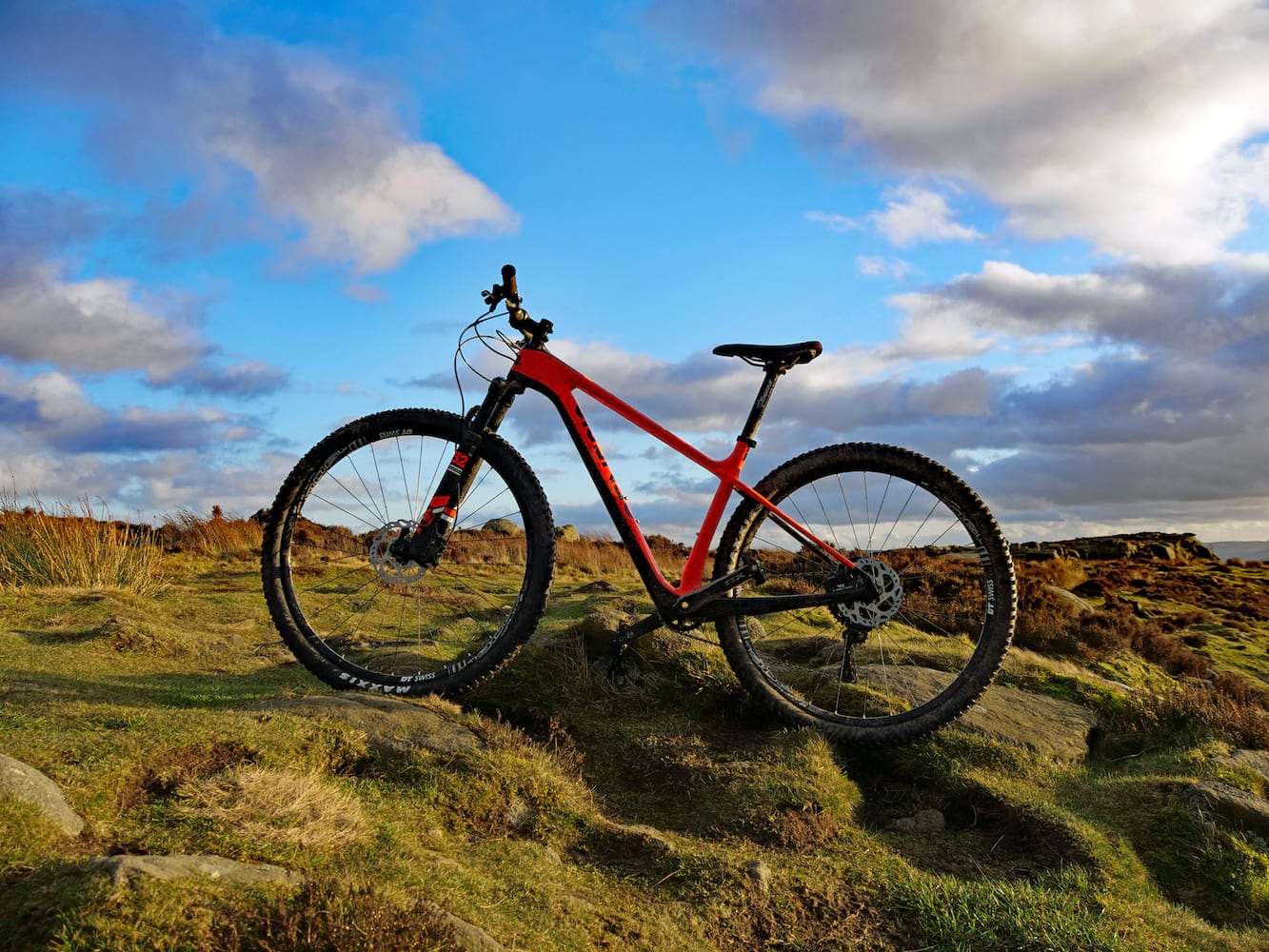
2018 Genesis Mantle 20 Specifications
- Frame // 30T Modulus Carbon Fibre
- Fork // Fox 32 SC Float, Performance Series, 100mm Travel
- Hubs // DT-Swiss M1900 Spline, 110x15mm Front & 148x12mm Rear
- Rims // DT-Swiss M1900 Spline, 22.5mm Internal Rim Width, Tubeless Ready
- Tyres // Maxxis Forekaster EXO 3C 29×2.20in Front & Rear
- Chainset // Shimano SLX 32t Chainring
- Rear Mech // Shimano SLX 11-Speed
- Shifter // Shimano SLX 11-Speed
- Cassette // Shimano SLX, 11-46t, 11-Speed
- Brakes // Shimano MT500, 160mm Front & Rear
- Stem // Race Face Turbine, 70mm Long
- Bars // Race Face Turbine Flatwide, Alloy, 720mm Wide
- Grips // Genesis Lock-On
- Seatpost // Race Face Turbine, 31.6mm,
- Saddle // Fizik Monte
- Size Tested // Medium
- Sizes Available // Small, Medium, Large, X-Large
- Actual Weight // 10.8kg / 23.76lb
- RRP // £2599
Subscribe from just £1.50
Trusted reviews of the brands you love.
While you are here..
If everyone who reads our features, who likes them, helps fund us, our future would be much more secure. Help fund the content you love us to create from just £1.50/month. It’s easy to setup, secure and you can cancel at any time with the click of a mouse.
